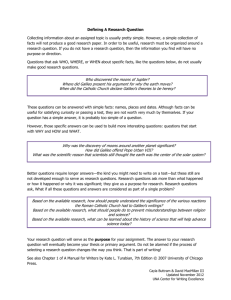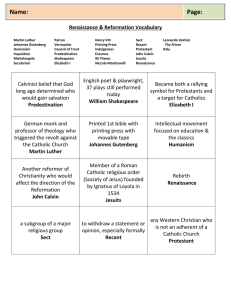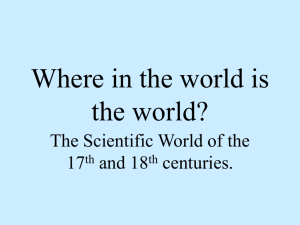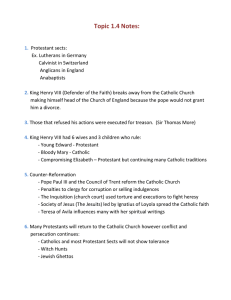Cultural
advertisement
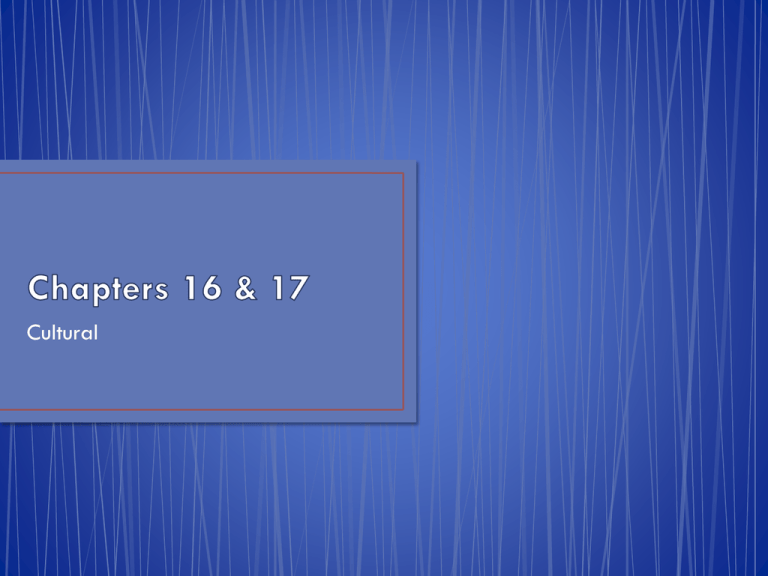
Cultural • • • • • Humanism Secularism Commercialism Feudalism to centralization Urbanization • Moral supremacy of priesthood • Decline of papal authority • Religious division • Growth of secularism "In the authority of all the saints, and in compassion towards thee, I absolve thee from all sins and misdeeds, and remit all punishment for ten days." Catholic Reformation: Changes in Thinking • Validity of papal authority • Admission of guilt • Persecution/suppression of heresy • • • • Pope Paul III Council of Trent Jesuits & Ignatius Loyola Inquisition • Catholic response • Able to keep Catholicism solidly in the south and parts of Eastern Europe • A church council met and refuted protestant tenets • A new religious order, the Jesuits, became active in politics, education, and missionary work especially in Asia and the Americas • Catholic and Protestant leaders worried that these findings would lead people to question the Church’s authority • Galileo • 1616 the Catholic Church warned Galileo not to defend Copernicus’s ideas • 1632 Galileo published Dialogue Concerning the Two Chief World Systems, which clearly supported Copernican theory • 1633 called to stand trial, confessed that the ideas of Copernicus were wrong • Lived under house arrest and died in 1642 • Centralization • Absolute or Parliamentary Monarchy • Territorial Expansion • Denis Diderot —Encyclopedia compiled scientific and social scientific knowledge • Human beings are good and improvable • Blind faith and refusal to tolerate diversity is wrong • Mary Wollstonecraft —feminism • Reading clubs and coffee houses • Scientific revolution Enlighten • Applying scientific method to the study of human society • Rational laws • Against cruel punishment; decent society could rehabilitate criminals • Constitutions to curb privilege • Adam Smith (Wealth of Nations)—economic behavior • This idea of buying stuff to have not just to survive • Rich more elaborate lifestyle • created a new rural and urban proletariat that suffered from increased food prices. • 1600s led to popular protest and worried peasants • Also anxiety about witches (60,000 to 100,000 were killed) • Poverty • Women • Tensions in family life
